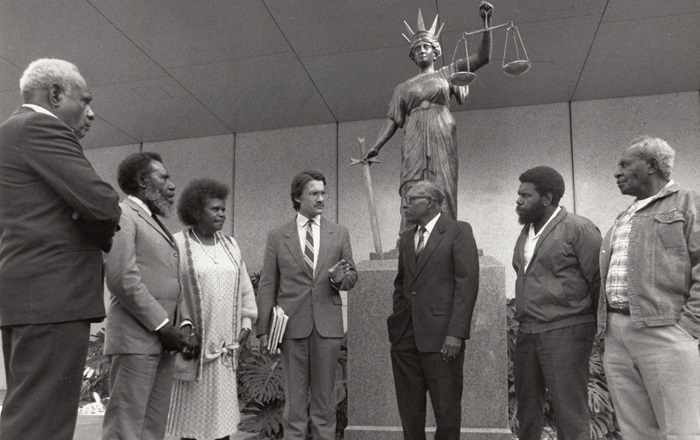May 12th holds a significant place in the historical narrative of Australia, marked by events that have shaped the nation’s identity and trajectory. From moments of colonial conflict and Indigenous resistance to milestones in social reform and cultural expression, May 12th serves as a reflection of Australia’s complex and multifaceted history. In this article, we explore the key events that have occurred on May 12th throughout Australian history, illuminating the stories of struggle, resilience, and progress that define the Australian experience.
1788: Arrival of the First Fleet in Sydney Cove
On May 12, 1788, the First Fleet, a convoy of eleven ships carrying British convicts, settlers, and officials, arrived at Sydney Cove, marking the beginning of European colonization in Australia. Led by Captain Arthur Phillip, the fleet established the first permanent European settlement on the continent, laying the foundation for the future city of Sydney and the colony of New South Wales. The arrival of the First Fleet had profound consequences for Australia’s Indigenous peoples, leading to dispossession, conflict, and the disruption of traditional ways of life.
1965: Freedom Rides Challenge Racial Segregation
May 12, 1965, saw the launch of the Freedom Rides, a campaign aimed at challenging racial segregation and discrimination against Indigenous Australians in rural New South Wales. Inspired by the civil rights movement in the United States, a group of university students, led by activist Charles Perkins, traveled through country towns to draw attention to the injustices faced by Aboriginal people. The Freedom Rides brought national and international scrutiny to the issue of Indigenous rights in Australia and helped galvanize support for the cause of equality and reconciliation.
1982: The High Court Mabo Decision
A landmark moment in Australia’s legal and Indigenous rights history occurred on May 12, 1992, with the High Court’s ruling in the Mabo case. The case, brought by Eddie Mabo and other Torres Strait Islander plaintiffs, challenged the doctrine of terra nullius—the legal fiction that Australia was unoccupied before British colonization—and sought recognition of Indigenous land rights. In a historic decision, the High Court overturned terra nullius and recognized the existence of native title, affirming Indigenous Australians’ rights to their traditional lands and paving the way for subsequent legislative reforms.
2007: The National Apology to the Stolen Generations
May 12, 2007, marked a watershed moment in Australia’s reconciliation process with its Indigenous peoples, as then-Prime Minister Kevin Rudd delivered a formal apology to the Stolen Generations on behalf of the Australian government. The apology acknowledged the profound injustices and trauma inflicted upon Indigenous children who were forcibly removed from their families by government authorities as part of assimilation policies. The National Apology was a crucial step towards healing past wounds and fostering greater understanding and respect between Indigenous and non-Indigenous Australians.
2020: Black Lives Matter Protests in Australia
In the wake of the killing of George Floyd in the United States, May 12, 2020, witnessed widespread Black Lives Matter protests across Australia, calling attention to systemic racism and police brutality against Indigenous and minority communities. Thousands of Australians took to the streets in cities and towns across the country to demand justice and equality, highlighting the ongoing struggle for racial justice and social change in Australia. The protests sparked national conversations about racism and discrimination, prompting calls for meaningful action and reform.
1932: Opening of the Sydney Harbour Bridge
One of Australia’s most iconic landmarks, the Sydney Harbour Bridge, was officially opened to the public on May 12, 1932. Stretching across Sydney Harbour and connecting the central business district with the North Shore, the bridge represented a triumph of engineering and a symbol of national pride. The opening ceremony, attended by thousands of spectators and featuring a display of fireworks and festivities, marked a moment of celebration and unity for the people of Sydney and Australia as a whole.
1989: Royal Commission Report on Aboriginal Deaths in Custody
On May 12, 1989, the Royal Commission into Aboriginal Deaths in Custody released its final report, marking a pivotal moment in Australia’s reckoning with its treatment of Indigenous peoples. The report, which followed a comprehensive inquiry into the deaths of Indigenous Australians while in police custody, highlighted systemic failures within the criminal justice system and called for sweeping reforms to address issues of institutional racism and inequality. The release of the report sparked national debate and activism, paving the way for greater awareness and advocacy for Indigenous rights and reconciliation.
2004: Opening of the National Museum of Australia
May 12, 2004, saw the official opening of the National Museum of Australia in Canberra, the nation’s capital. Designed to showcase the rich and diverse history and culture of Australia, the museum features extensive collections and exhibitions spanning Indigenous heritage, European exploration, colonial settlement, and contemporary society. The opening of the museum represented a significant milestone in Australia’s cultural landscape, providing a focal point for education, research, and public engagement with the nation’s past.
Conclusion
May 12th stands as a day of remembrance and progress in Australian history, marked by moments of both triumph and tribulation. From the arrival of the First Fleet to the recognition of Indigenous land rights, from the struggle for racial equality to the pursuit of reconciliation, the events that have unfolded on this date reflect the enduring quest for justice, dignity, and inclusivity in Australian society. As we reflect on the significance of May 12th, we are reminded of the importance of acknowledging the past, confronting injustices, and working towards a more equitable and harmonious future for all Australians.

